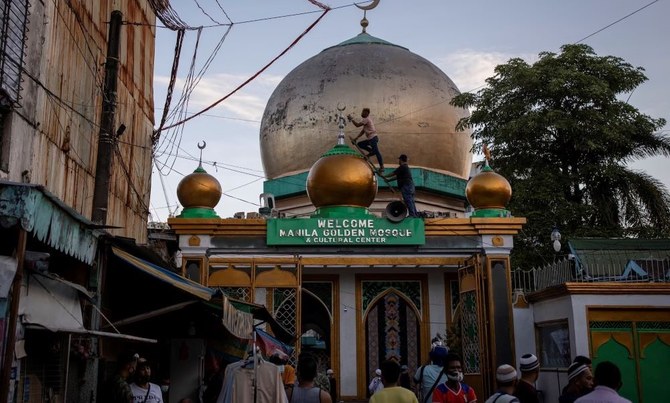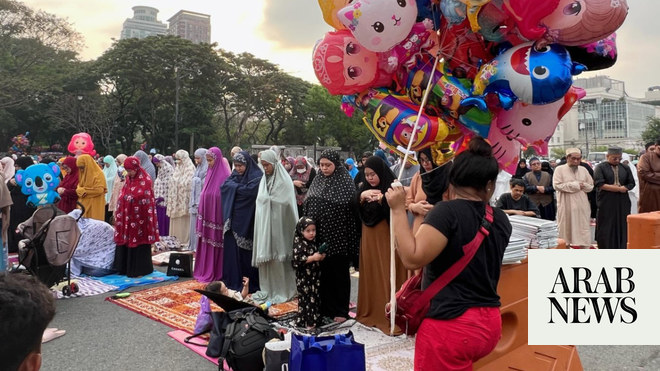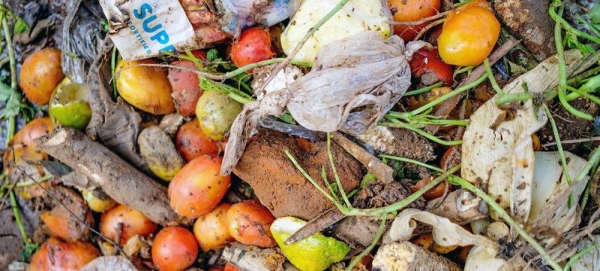
Justice Secretary: inmates should be included in the priority list because they are also entitled to vaccines
MANILA: As coronavirus disease cases continue to surge across the Philippines, prison officials said on Tuesday efforts were underway to inoculate thousands of inmates after Justice Secretary Menardo Guevarra said they “should not be left behind” in the vaccine rollout.
Only 2,684 out of over 48,000 inmates at the New Bilibid Prison and other correctional facilities under the Bureau of Corrections, or BuCor, have received COVID-19 jabs so far, official data obtained by Arab News showed.
According to the information provided by Justice Undersecretary Emmiline Aglipay Villar, out of the vaccinated inmates, 2,400 are from the Correctional Institution for Women, 10 from New Bilibid Prison, 214 from the San Ramon Prison and Penal Farm, and 60 from the Davao Prison and Penal Farm.
Three other BuCor facilities — the Sablayan Prison and Penal Farm, Iwahig Prison and Penal Farm, and Leyte Regional Prison have yet to vaccinate their inmates.
BuCor spokesperson Gabriel Chaclag said prison officials were taking measures to ensure the safety and protection of inmates from COVID-19.
“Each superintendent of every prison camp in the country is coordinating with the local government units for the vaccination of inmates,” Chaclag told Arab News on Tuesday.
“Internally, there is also an effort by BuCor to ask the Department of Health and the Inter-Agency Task Force for the Management of Emerging Infectious Diseases for vaccine supply, and if possible to allow the bureau to buy vaccines for the inmates,” he added.
Chaclag stressed that “they will not stop until they are able to find a source of vaccines for the inmates.”
The measures came a day after Guevarra urged prison officials “to find ways to vaccinate inmates” after the Commission on Human Rights reminded the government to “treat all PDLs (persons deprived of liberty) as humans with inherent dignity and rights, including their right to health.”
Guevarra said inmates should be included in the priority list because they are also entitled to vaccines.
“They should not be left behind in the vaccine rollout,” he added
Earlier this month, the Philippines approved the emergency use of Russia’s Sputnik Light COVID-19 vaccine, along with vaccines from Pfizer, Moderna, Johnson & Johnson and China’s Sinovac and Sinopharm, to meet its vaccination targets.
Authorities have said the vaccine rollout is key to the recovery of the Southeast Asian country’s economy, and necessary to curb the spike in infections.
On Monday, the Philippines saw a new record of 22,366 COVID-19 cases in one day.
There was a drop in numbers on Tuesday, with the Department of Health reporting 13,827 new COVID-19 infections
The latest figures add to 1,989,857 COVID-19 cases and 33,447 deaths recorded across the Philippines so far, of which 1,810,847 patients have recovered from the disease.
Despite the low vaccination rate in prisons, Chaclag said that the COVID-19 outbreak was manageable in BuCor facilities with only “a small number of infections among inmates.”
As of Aug. 30, there were 647 COVID-19 cases and 32 deaths recorded across BuCor facilities, of which 613 had recovered from the disease. Currently, BuCor has only two active cases.
Meanwhile, Corrections Technical Senior Superintendent Cecilia Villanueva, deputy director of BuCor’s health and welfare services, said that as early as January 2020, a health advisory on the coronavirus was distributed to ensure the safety and protection of personnel and inmates.
“Prior to the imposition of the Luzon-wide lockdown on March 16 (last year), BuCor has developed proactive measures … such as the restriction of visits, (and) creation of a COVID-19 task force,” Villanueva said.
“Despite the stringent measures that are being enforced by the BuCor … COVID-19 has penetrated the prison walls. Hence, almost 60 policies, programs and other measures were established, especially on infection, prevention and control,” she added.
These include a mass immunization program launched in August last year, regular disinfection of facilities, swab or PCR tests, and the establishment of an isolation area in each compound.
Meanwhile, health officials attributed the recent spike in COVID-19 cases to the highly virulent delta variant of the coronavirus, detected in all regions in the country, except for the Bangsamoro Autonomous Region in Muslim Mindanao.
On the vaccine rollout, the Department of Health said that as of Aug. 29, more than 33 million doses had been administered.
Over 13 million Filipinos have received both doses of the vaccine, leaving much of its 110 million population vulnerable to the delta variant, while over 19 million have received the first dose.











